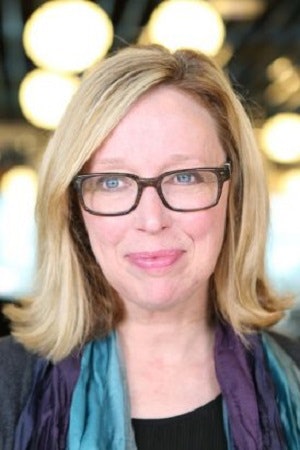The Kessler Presidential Scholars Program, which was established at the University of Michigan (U-M) to support first-generation students financially and academically, will expand to more institutions across the country this fall.
 Dr. Gail Gibson
Dr. Gail GibsonThe program will be launched at Johns Hopkins University, Queens College, St. Francis College and Syracuse University. They will join Cornell University, which started the scholars program last year.
“We have had just enormous support and enthusiasm from each of the partner schools on this project,” said Dr. Gail Gibson, director of the Kessler Presidential Scholars Program at U-M’s College of Literature, Science and the Arts. “But coming together and working on this project, even if at this extraordinarily busy and complicated time, really has been a real bright light. And I think each of us sees the way that this kind of support for students is just more critical now than ever and is really driving, I think, some of the early successful work in this space.”
At Syracuse University, 17% of undergraduates identify as first generation. Huey Hsiao, associate director in the Office of Multicultural Affairs at Syracuse, said the scholars program will “support the university’s longstanding commitment to enhance first-generation college student access, inclusion and success.”
“Through this program, we seek to provide first-generation college students with a network of support to enhance their holistic student experience, in and out of the classroom, and help them thrive as scholars, leaders and global citizens as they pursue their goals during their time at and beyond Syracuse University,” added Hsiao, who will run the Kessler Scholars Program at Syracuse.
The scholars program was established in 2007 at U-M by Fred Wilpon, a first-generation student, alongside his wife Judy Wilpon, who are both alumni of the school. It was originally established as a scholarship program for first-generation students. In combination with institutional and federal aid support, students are offered financial assistance that covers the total cost of attendance for four years of college.
“That economic piece is addressed in a pretty substantial way for these students and that opens up possibilities for students to explore other opportunities,” said Gibson.
However, she acknowledged that “money alone is not enough to make it through higher education and succeed and thrive.”
Therefore, in 2017, the program was redesigned to focus on the first-generation experience rather than on financial assistance alone. Now, students can receive one-on-one support from staff members, attend career workshops and participate in community activities, seminars and study abroad programs as well.
 Huey Hsiao
Huey HsiaoTo qualify for the program, students must first be accepted by a participating institution. At U-M, students who identify as first generation and are in need of financial assistance are invited to apply. For this upcoming cohort at U-M, there were 167 applicants for 40 program spots.
Beyond academic achievement, applications are analyzed for evidence of leadership such as caring for younger siblings after school, holding a job, volunteering or participating in after-school clubs. Additionally, students need to show interest in giving back to the community.
“We know from research that that is really a common driver for first-generation students in the sense that [they] are going to do this thing and in turn, give back in some ways to the place and people who helped [them] achieve that,” she said.
The program also offers opportunities for participants to serve on the student leadership board, to mentor peers and to provide input on the program’s design to keep it “relevant” and “interesting,” according to Gibson.
Throughout the program’s 12-year history at U-M, there have been 212 scholars. The four-year graduation rate for these scholars is 81% and the six-year rate is 95%.
Gibson said that as the program expands, it creates an opportunity for collaboration with students from other schools as well as a chance to build a network of contacts.
Alongside the Wilpon Family Foundation, the Center for Education Design, Evaluation and Research at U-M’s School of Education will analyze how each school implements the program and study the overall effectiveness of the program in new environments.
“We’re interested to learn across these sites and the diversity of concepts about what works best,” said Gibson. “I think there’s also a moment where collaboration is going to be needed more than ever in higher education to figure out what is a really complicated road ahead.”
Sarah Wood can be reached at [email protected].















